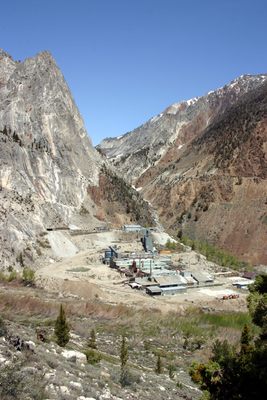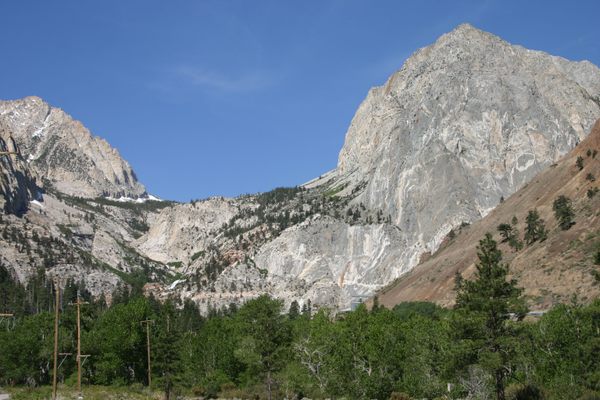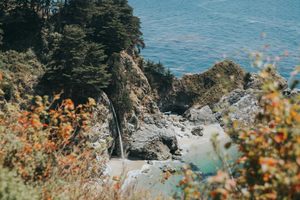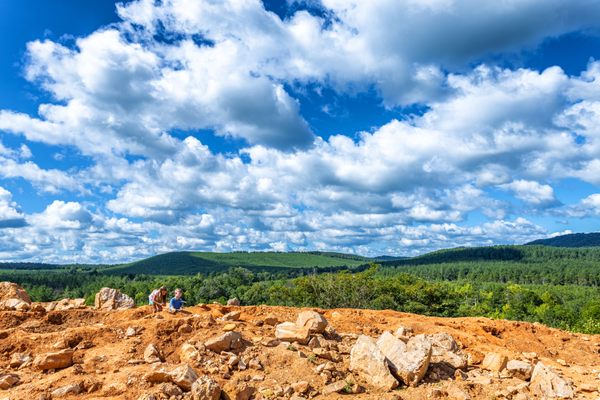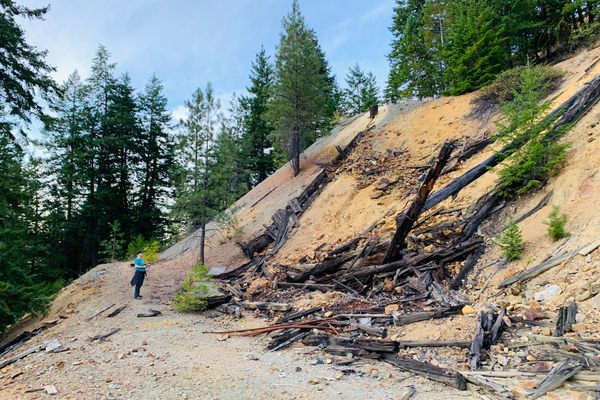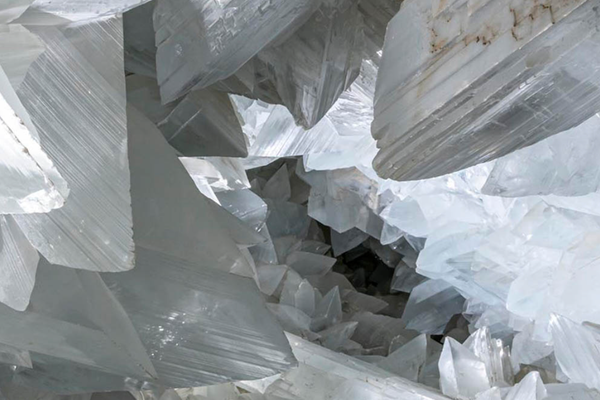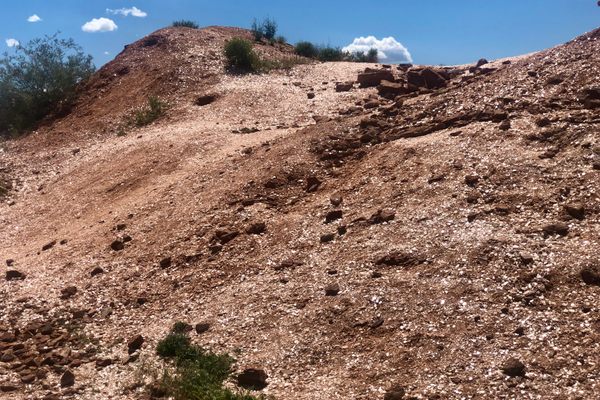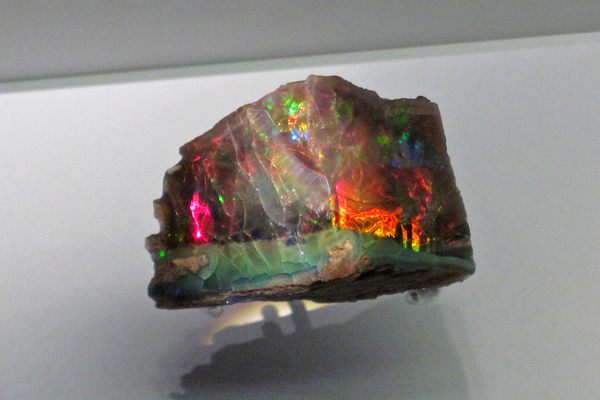About
Pine Creek is a prominent canyon of glacial origin draining eastward from the Sierra Nevada outside Bishop, California. Metamorphic rocks, including tungsten-bearing marble, are exposed in the upper part of the canyon. The deposits were discovered during World War I, and—despite the exceedingly difficult access and often savage wintertime conditions—mining began right at the end of the war.
Tungsten is a strategically significant metal, due to the extremely hard alloys it makes with steel. However, demand collapsed with the end of the war. The mine remained inactive through most of the interwar years, but production began again in a big way in the late 1930s, including the construction of new transportation infrastructure such as automotive roads and tramways to deal with the extremely steep terrain.
As might be expected, production boomed during World War II, and indeed other tungsten deposits in the vicinity, many in equally spectacular environs, were developed. Most closed after the war, but the Pine Creek Mine continued producing into the late 20th century.
Dropping tungsten prices and increasing costs due to environmental concerns made the mine unprofitable, and it finally closed in 2001. It is still just mothballed, however, and could reopen should conditions change.
Related Tags
Know Before You Go
A paved road runs up Pine Creek. It intersects US-395 9.9 miles north from the intersection with US 6 in Bishop. Rovana, the old company town, is about 3.1 miles in, and it is 9.4 miles from US 395 to the Pine Creek Pass/Gable Lakes trailheads. These trailheads are on the left just before the road turns north to cross Pine Creek and continue to the gated mine entrance.
The mine is still privately owned, with a watchman, and is closed to public access. However, spectacular views can be had from these trails, which climb up the south and southwest sides of Pine Creek Canyon. The Gable Lakes trail heads south and climbs steeply. The Pine Creek Pass trail continues up Pine Creek Canyon, eventually topping out at the eponymous pass where it enters the John Muir Wilderness.
Ruins from some of the other tungsten operations can also be seen here and there along these trails.
Community Contributors
Added By
Published
April 18, 2022

